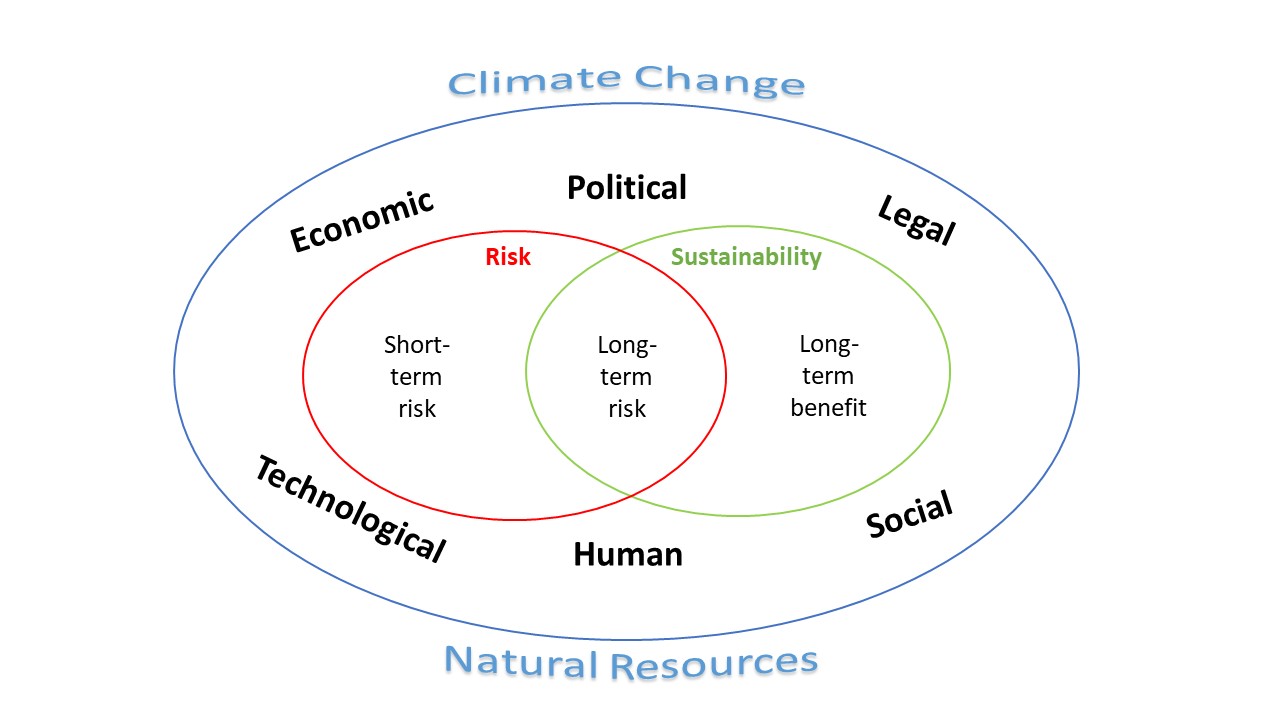The participants of the course are to be enabled to scientifically penetrate the
interdisciplinary complexity of the subject areas of sustainability and risk management, to
understand and anticipate interrelationships and mutual effects, and to develop appropriate,
responsible solutions for their field of activity. Special attention is paid to a fact-based,
analytical approach and the critical examination of existing approaches. The teaching modules,
which examine and structure the subject areas of sustainability and risk management from various
aspects in an interdisciplinary manner, serve this purpose.
Students should be enabled to grasp and assess both subject areas in an interdisciplinary manner
and to develop and implement holistic strategies and concepts appropriate to the various
disciplines. They should develop the ability to identify strengths and weaknesses of approaches to
solutions from fact-based analysis and to synthesise them creatively into improved solutions. The
Application Workshops, which build on the teaching modules, are networked with them and develop
them further in various practical problem areas, serve this purpose.
The prerequisite for achieving the qualification goals is that the participants already have
comprehensive skills in at least one of the underlying disciplines as well as corresponding
practical experience. This is ensured by the admission requirements of a completed academic
education and at least one year of corresponding professional experience.
The acquired qualifications enable the participants not only to deal with challenges of
sustainability and risk management in their professional environment using scientific methodology
and thus to further develop their professional qualification, but also to competently address these
highly relevant topics in social discourse and to participate responsibly in their development and
implementation.
The discourse-oriented teaching modules, the application workshops aimed at cooperation and
implementation competence, the comprehensive master's thesis aimed at independence and personal
responsibility, and the international study programme, which is conducted entirely in English, thus
also explicitly serve the personal development of the participants.


